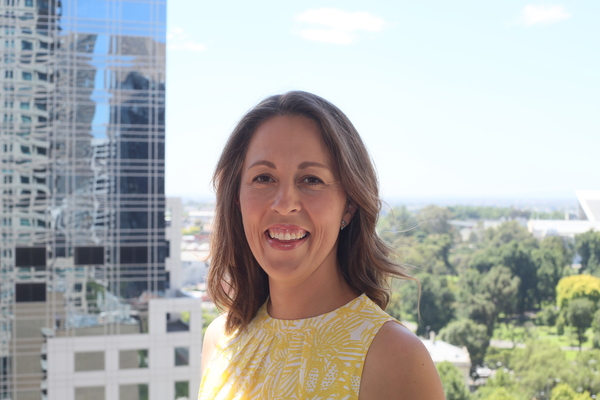Shelley Flett is an expert in leadership development and team performance, with over a decade of experience in operations and call centres across banking and telecommunications. Shelley is the Author of ‘The Dynamic Leader: Become the leader others are inspired to follow’. This month she writes exclusively for Grow on leadership.
For most managers and business owners their first ‘leadership’ experience is often running frontline teams – the staff who have direct contact with your customers and influence the experience, reputation and loyalty to your business.
In the early stages of your role as a leader, you’re likely to be ineffective as you try to figure out what to do, often with minimal guidance and support. And you may not consider this is an issue.
What’s interesting, according to a Study of Australian Leadership, is that “frontline leadership effectiveness has a positive and significant relationship with employee engagement”.
So while you’re trying to figure out how to lead you’re impacting the performance of your staff and the performance of the business. Despite this reality, training and development for first-time leaders continues to be significantly under invested in.
In the absence of training and development you are likely to have a natural preference for either:
People and building relationships. You may prioritise people over task and tend to focus on building relationships with your team.
Or…
Delivering outcomes. You prioritise task over people and tend to focus on getting things done. You move with purpose and always appear busy.
What staff today want is a leader who is inspiring, cares about people and is interested in growth and development. This means, as a leader, you must be intentional in your actions and be aware of what’s going on around you, rather than simply doing what’s automatic.
In my book I share the importance of leaders nurturing relationships as well as driving performance. One must not come at the expense of the other. For new leaders in particular, the concept of finding a balance between people and task can become overwhelming. I share three core components for leaders to focus on: investing in relationships; inspiring respect; and influencing results.
Invest in Relationships
The first priority for a leader is to develop, deepen and nurture relationships with their staff. Be authentic and take a genuine interest in who they are as people, not just employees.
Inspire Respect
The second priority for a leader is to earn the respect of their staff. This involves seeing other perspectives and acknowledging that there are no ‘right’ or ‘wrong’ ways of doing things, just different. When leaders can swap judgement for curiosity and take on different views and opinions, they let go of their tight grip on reality and become open to possibility.
Influence Results
The third priority is to empower staff to perform at their best. According to the study more than 40% of Australian workplaces “are not meeting their performance targets for return on investment and profitability”. This supports the need for clear objectives, realistic timeframes and a commitment to deliver on their promise. Leader need to hold their staff accountable for their commitments and create the right environment, support and encouragement for them to learn and grow.
Development is critical for leaders at any level to ensure their focus isn’t in just one area. Leaders who are balanced in their approach and intentional about what they do will inspire others to follow and will learn to ‘do different’ rather than ‘do more’.
‘The Dynamic Leader: Become the leader others are inspired to follow’ is published by Major Street Publishing and is available for $29.95. For more go to www.shelleyflett.com.







